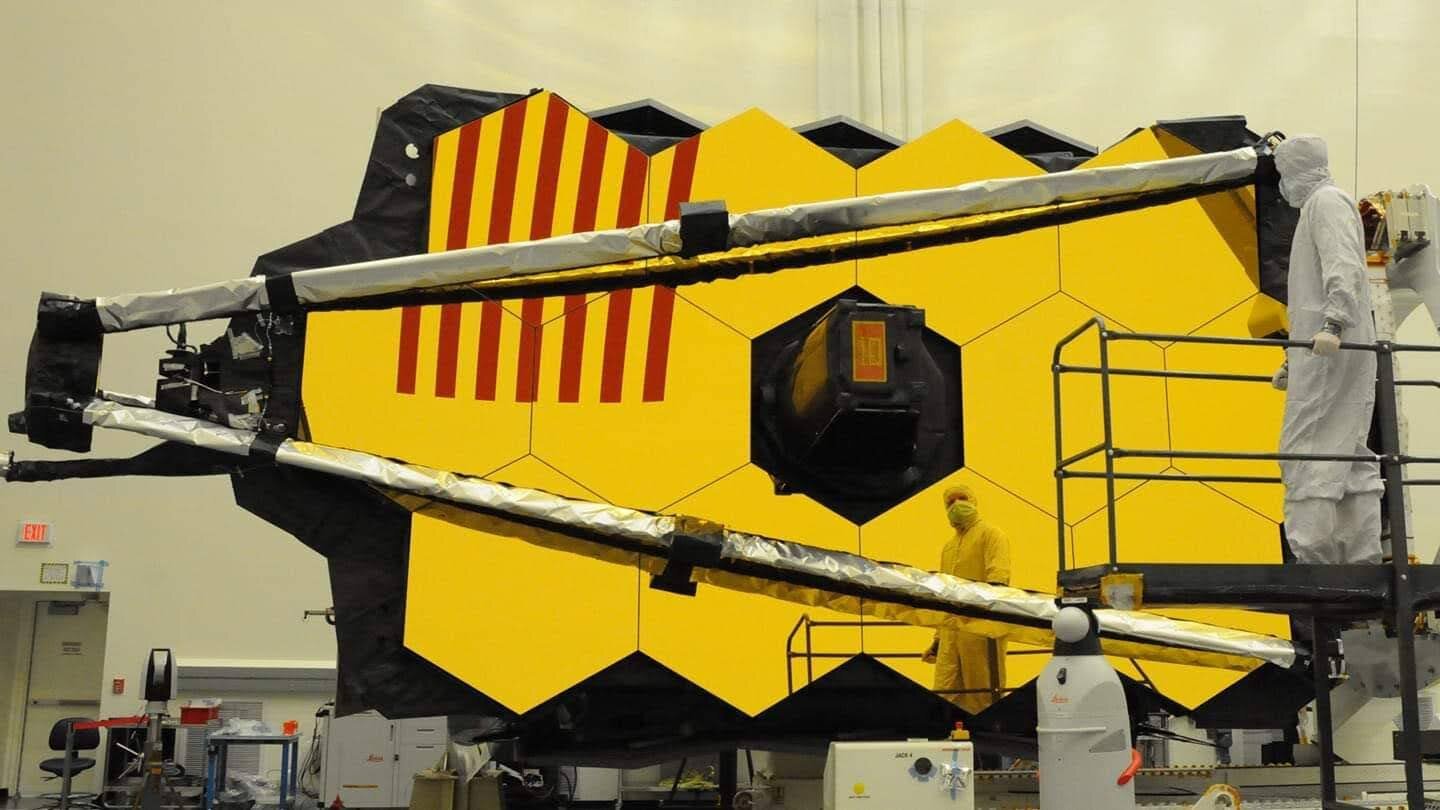Bill Waterstreet: The James Webb, Big Bang and SpaceX
Today's conversation is a continuation of Bill's, most recent chapter of his life with the completion of his graduate degree. Bill will now be working with Northrop Grumman and it's NASA partnership for the James Webb space telescope.
Bill spends the majority of this podcast talking about his work on the project and a lot of the cool science that's going into the James Webb space telescope. Bill does a great job of making science accessible to the average listener. He really thinks of analogies and examples so that other people can understand who may not be as technically minded on how we test complex machines or how to test these very complicated projects so that they actually work when they go out in space and we actually can't fix them.
And now for a short correction section, before we get into the podcast, because we talked about the big bang and seeing things in space with some pretty intense numbers, but we really didn't fact check ourselves in the middle of the conversation because it's, It would be difficult. I wanted to throw it in here now, so that if you hear the numbers, just remember and make note that those numbers are off, and here are the correct ones now. So the first one being is the age of the universe is just under 13.8 billion years old.
The furthest observational limit of the Hubble telescope is 13.2 billion light-years. Images are pretty unclear at that distance and many more observations that are a little closer to that. The Hubble will be able to get a less than ideal images from object 600 to 800 million years after the big bang at the furthest extent.
James Webb will be able to collect data from objects 200 to 400 million years after the big bang.
And then a small correction of the actual James Webb. We said that each hexagonal mirror has only three grams of gold plating on its surplus. We said three atoms thick that might not be right. it's still a tiny amount with the amount of surface area, but it equates to 120 nanometers thickness of gold each.
The planned operational life of James Webb is 10 years. So I'm not sure what the exact year we said was, but we expect once it's up in space to be 10 years long, So that is all of the rap sheet here on this podcast. And. I hope you all enjoy this fascinating conversation about Bill's next career working on the James Webb space telescope and his interest in space. Please enjoy!
Additional Links for the James Webb:
NASA Site:
James Webb Space Telescope - Webb/NASA
What Are the Capabilities of the Most Powerful Telescope Ever? James Webb.
The Power Of The James Webb Telescope
Longer, a little dry, but very in-depth:
Bill Waterstreet graduated high school in 2009 and proceeded to pursue an Associate's Degree in Science at Oakland Community College, which he completed in December 2010. Immediately following, he enlisted in the United States Marine Corps and began his service in January 2011. Throughout his time in the Corps, Bill worked primarily as a journalist in uniform, which consisted taking photos, publishing stories of fellow Marines, editing the works of other writers, organizing events between his post and the local community, collaborating with civilian media outlets, running the base website, and training his junior Marines. When deployed to Afghanistan in 2013-2014, he assisted Army units in their Information Operations capacities. In addition to his primary duties, Bill also served as a Marine Corps Martial Arts Instructor, a Suicide and Prevention Instructor, and Single Marine Program Vice President and President for his unit. While off- duty, he also attended classes at Northern Arizona University with a major in Psychology but did not complete a degree. He completed his service in the Corps and was honorably discharged in January of 2015 at the rank of Sergeant.
Following his service, Bill began attending the University of Michigan in Ann Arbor in the Fall of 2015. There he majored in Mechanical Engineering and minored in Electrical Engineering, graduating with a Bachelor's Degree with Magna Cum Laude honors in April 2019. He continued on at Michigan to achieve his Master's Degree in Mechanical Engineering with a focus in Controls in April 2020. While attending U of M, Bill was active in veterans' organizations, including work as a Peer Advisor for Veterans Education and serving as the President of the local chapter of Student Veterans of America.
In his free time, Bill enjoys weight lifting, jogging, riding motorcycles, reading, playing guitar, board games, Dungeons and Dragons, and video games.
Show notes:
[00:05:53] James Webb Introduction
[00:08:50] Seeing back in time
How can a telescope see through time?
If The Universe Is 13.8 Billion Years Old, How Can We See 46 Billion Light Years Away?
[00:10:44] Can you see farther back in time than the age of the universe?
[00:15:06] Folding Spacetime
Space folding
#32 - Film Deep Dive: Interstellar — Feeding Curiosity
[00:16:48] What was before the big bang?
[00:18:04] Testing the James Webb
[00:20:24] The Sunshade
[00:22:57] Problems with launching the Hubble
[00:25:11] How to make sure nothing fails?
[00:29:23] Points of Failure and working on the telescope
[00:35:22] The Daily Work
[00:39:11] The Cuckoo's Egg by Cliff Stoll
[00:39:54] How did Bill get the Job?
[00:42:26] SpaceX
[00:44:24] The Dragon Capsule
Dragon - SpaceX
Nasa SpaceX crew return: Dragon capsule splashes down
Inside SpaceX's Crew Dragon Capsule | Space Launch LIVE


